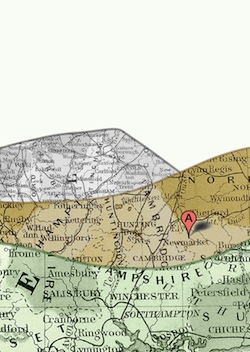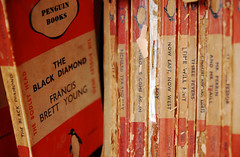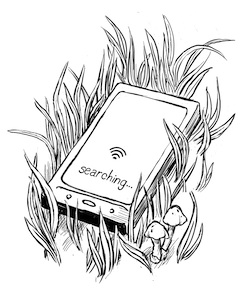Last year, I laid out my goals for the year. If was a relatively modest list which I had no doubt I’d be able to plough through in no time at all.
Ha ha ha ha ha ha. *pauses for breath* Ha ha ha ha ha ha ha ha ha ha ha.
At least I managed to (mostly) keep to my overarching goal:
Finish your open projects before you start any new ones.
I didn’t start any major new projects that I shouldn’t have, although I also didn’t finish quite as much as I had hoped I would. Still, I passed some pretty big milestones in 2011, so that makes me very happy.
Here’s my status update:
Writing
Completed:
- Argleton – Yay! An epic battle to get it all done to a standard I was happy with in a time frame that didn’t frustrate my supporters, but I managed in the end. There’s still more to come with Argleton in 2012 though, including an audiobook and a new cover design.
Still to finish:
- The Prequel to the Books of Hay – Still not started, but am going to have to think about it as, whilst I have the setting and some characters, the plot just refuses to come together in my head. Bah.
- The Books of Hay – I was some 30,000 words into this when Argleton struck, but need to figure out the prequel before I decide what to do with this.
New on the list:
- Queen of the May – 10,000 words into this already, and hoping to finish it up very soon. It somewhat jumped to the head of the writing queue because the story was fully formed in my head and so easy to get out.
Crafting
Ditched:
- Black crocheted cardigan – Took a look at this, decided that I didn’t like it any more and frogged it. (That’s knitting parlance for undoing a bit of knitting/crochet.)
Completed:
- Crocheted tablecloth – Hah! Done! Oh yes. Two weeks before we left the Arsenal flat and thus the table it was designed to fit, I finally finished it! Looks good on the gatefold barley-twist leg oak table we bought for the new place, though.
- Blue shrug – This was a gift for a friend, and these things work up really quickly so took no time at all.
- Furry cream shrug – For me! Too chilly to wear it at the moment but will be great for spring.
- Blue mini-scarf – With only one ball of yarn there wasn’t much to do with it except make a very narrow scarf. Came out lovely though!
Still to finish:
- Nuptial cushions
- Jewellery
- Mend throw
- Hatboxes
New on the list:
- Black hourglass jacket – I’m making this with the yarn from the frogged black cardigan.
Misc
Completed:
- Clear out boxes – The move from London to Working forced me to clear out a lot of stuff, and Kevin’s done even more over the Christmas break. Still a few to do, but as we’ve reduced our box count substantially I’m marking this as done!
- Recycle clothes – Done when we moved.
- Find home for unwanted computer – Also done when we moved. Was amazing how fast old computing gear was taken when we left it in our communal hallway with a note saying “Please take me”. 😀
No other misc tasks still to finish or added to the list. Yay!
Focus for 2012
Without a doubt, my focus for 2012 is on writing. Writing is what I have always wanted to do with myself, and I finally have found a way to make it work. I’ll be writing at least two novellas/novelettes in 2012, which I will probably put on Kickstarter to fund the physical copies. I may novelise Tag, my script. I might even start some new novels – I have plenty of ideas, but need to prioritise my writing to take the most promising and quickest ones on first.
My aim is to build up a corpus, a fanbase and enough sales that I can being to transition to writing full time. Kindle sales have a long, long way to go before they can even begin to replace my other income sources, but I am hoping that I can build them up over the next year to provide at least a decent trickle of cash.
I think my main income from writing in 2012 will be from Kickstarter, which will fund the printing and hand-binding of copies of the books for my supporters. I learnt a lot from Argleton, and I can do future projects much more effectively and quickly, which will also make them more cost effective.
The big challenge, however, will be reaching enough people, without the fortune of being included in the Kickstarter newletter which happened last time but is very unlikely to happen again. I can only hope that my reach has increased over the last 18 months!
So, that’s my 2012. I really can’t wait to get my teeth into it!
{ Comments on this entry are closed }










